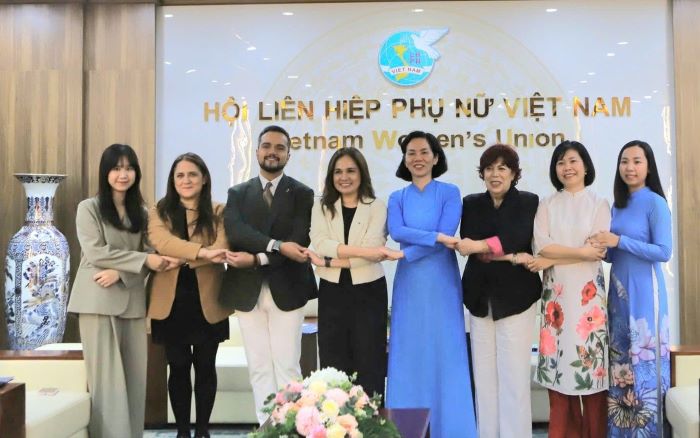I. Speech by Dr. Neal Koblitz, Professor of Mathematics at the University of Washington and Secretary of the Kovalevskaia Fund:
When Ann and I rode into
During the 25 years of the Kovalevskaia Prize in
research teams (led by women) and more than twice as many individual winners have received the Prize.This large group of research leaders represent almost every area of science, technology, and medicine.Their contributions range from the most abstruse areas of theoretical physics to the most immediate problems of agriculture, applied chemistry, and disease control.Altogether these women have written a whole new chapter in the long history of pioneering women of
At present the Vietnamese people and government are immersed in a lively debate about the direction of higher education.The stakes in this debate are very large, because university education is a crucial part of the formation of the next generation of leaders and thinkers.Unfortunately, almost all of the participants in this debate have been men, and almost all of the participants -- including the foreign so-called "experts" who offer advice to the government -- have ignored the fundamental issue of gender equity.But it is essential that the reform of higher education include an increased commitment to women's equality in all areas of science, technology, and other fields.The 2007 Law on Gender Equality calls for this, and it is well known that a country cannot meet its full potential unless it has the equal participation of women, who make up 52% of the population of
For example, a new policy allows universities to admit applicants who do not receive the highest scores on the entrance examinations and charge them much higher tuition fees.I wonder if it is true in
In conclusion, I wish to congratulate the Kovalevskaia Prizewinners of 2008 and 2009 -- as well as the prizewinners from the earlier 23 years -- on their achievements and their dedication to the progress of
II. Speech by Dr. Ann Hibner Koblitz, Professor of Women and Gender Studies at Arizona State University and Director of the Kovalevskaia Fund:
We are very honored to receive the Friendship Medal in recognition of the work of the Kovalevskaia Fund by the Government of Vietnam.The 25 years of the Kovalevskaia Prize have been a time of tremendous change and progress for
The Kovalevskaia Fund and the VWU are working to make the impact of the prizes even greater.Every two years we cosponsor the Get-Togethers, during which excellent women science students meet with Kovalevskaia Prizewinners and visit their laboratories and institutes.This is a useful first step.
But stronger efforts are needed.Young people now are greatly influenced by imported movies, the Internet, and Western consumerism.Unfortunately, young people now tend to shun scientific careers, preferring instead to enter business or some other high-paying profession.Now more than ever
For this reason the Kovalevskaia Fund is working with the VWU to encourage Kovalevskaia Prizewinners to develop plans to visit schools and universities and talk with young women about scientific and technical careers.The prizewinners can convey to young people the non-material satisfactions of scientific work --- the pleasure of finding a type of bacteria that can safely clean up oil spills, for example, or the joy of coming up with plant preparations that are less toxic, cheaper, and more sustainable than the petrochemically-derived pharmaceuticals imported from abroad.
In the
There are other possibilities for Kovalevskaia Prizewinners to be mentors for young people.For example, Prof. Pham Thi Tran Chau, who won the Kovalevskaia Prize in 1988, organized a club for women biology students at
Another way to help aspiring women scientists would be undergraduate research internships.Kovalevskaia Prizewinners could invite promising students into their laboratories and institutes so that the students could be exposed to the working world of scientific researchers on a daily basis.In all cases, the prizewinners would be acting as mentors and role models, encouraging young people to choose a life of scientific investigation and teaching, and perhaps someday win the Kovalevskaia Prize themselves.
I want to conclude by thanking our many friends in the Vietnam Women's







